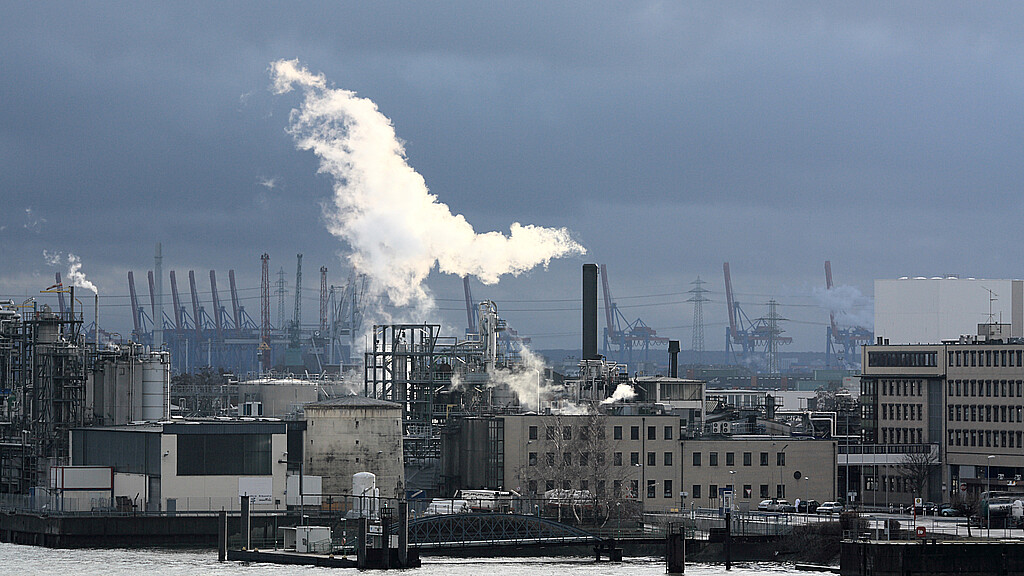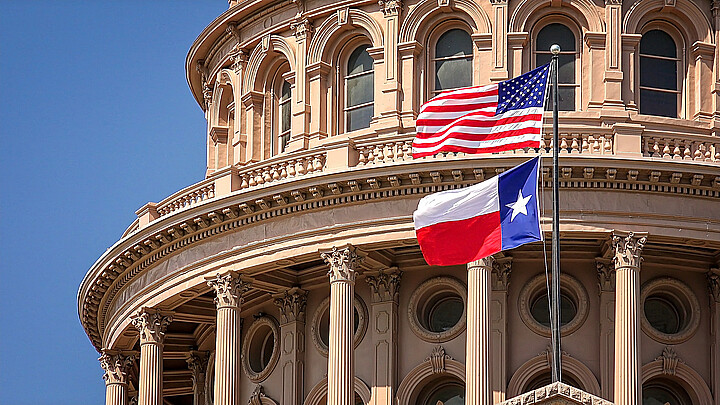Health
EPA launches investigation into whether Colorado air pollution discriminates against Hispanics
The U.S. Environmental Protection Agency is investigating the possibility that Colorado’s distribution of air pollution from Denver based industrial plants is discriminatory or could be creating a harmful disproportionate impact against Hispanic residents who live nearby, according to a letter released on Wednesday

December 29, 2022 9:01am
Updated: June 22, 2023 12:13pm
The U.S. Environmental Protection Agency is investigating the possibility that Colorado’s distribution of air pollution from Denver based industrial plants is discriminatory or could be creating a harmful disparate impact against Hispanic residents who live nearby, according to a letter released on Wednesday.
The investigation has reportedly been welcomed by Colorado Hispanics whose children go to school near one of Colorado’s only refineries. Media reports indicated some of the residents there have noticed so much pollution they even saw ash on their cars.
In December 2020 the Associated Press reported that one refinery owned by Suncor was facing a review of outdated permits.
“Colorado officials committed to cleaner air and reducing reliance on fossil fuels have reached a turning point on whether to tolerate the hulking oil refinery north of Denver that ranks among the state’s major polluters and regularly malfunctions,” the AP reported then.
A Denver Post report indicated at that time that Suncor was planning on investing $300 million to become “better not bigger.”
“Suncor’s outdated permits, which records show were issued in 2006 and 2012, allow emissions of 866,100 tons a year of heat-trapping gases and toxics including sulfur dioxide, benzene and hydrogen cyanide. During malfunctions, pollution exceeds what the permits allow,” the Denver Post reported.
“Colorado air pollution control officials defended their approach, saying it doesn’t impinge on their ability to enforce provisions of the old permits, and blamed bureaucratic backlogs. They’re acting now, they say, because Colorado is cracking down on pollution.”
But more than two years later, the same refinery is now raising troubling questions with federal officials and residents want answers and solutions.
One local resident turned activist, Lucy Molina, whose daughter attends school near the Suncor petroleum plant said that she was alarmed when she stepped outside and noticed her Nissan Altima was covered with ash. She then found out her daughter’s entire school was locked down due to fears the air was dangerous. Since then, she’s been fighting for authorities to step in and take action to ensure the air they’re breathing is safe.
“If we would have known” years ago, she told the Associated Press, “we would have moved.”
Others corroborate Molina’s concerns by saying the Suncor refinery just has too many problems and malfunctions with potentially high emissions. But Colorado has a track record for approving permits to polluters even in places where the ozone standard has surpassed federal standards, say reports.
The letter, sent by EPA investigators says they will target whether the state’s oversight of its most significant polluters and others is discriminatory.
The EPA launched its investigation in March under Title VI of the Civil Rights Act of 1964, but slipped under the radar until it dispatched Wednesday’s letter, which details its specific concerns and objectives. The CRA empowers the EPA to negotiate resolutions with states to promote equity.
Since taking office, President Biden has increased enforcement of environmental discrimination.
State officials said they welcome the EPA investigation, encourage community involvement, and are reviewing their permitting policies to make sure no particular groups are being disproportionately impacted by pollutants.
“We’ve always prioritized the health and wellbeing of every Coloradan no matter their zip code, but we know we have even more to do,” said Trisha Oeth, our Director of Environmental Health and Protection in a subsequent statement.
The investigation will determine if the state has acted sufficiently in that regard. So far the federal agency seems skeptical of the Suncor refinery, which is about 90 years old.
In March the EPA raised objections a key air permit for the refinery that was still under review by state regulators as much as 10 years after its expiration date.
The agency targeted that issue, saying Coloradoans were not given a forum to express their concerns. When the state issued a revised permit, the EPA stood down.
Other concerns arose in July, when the EPA said Colorado issued permits for mine, oil and gas wells and other potential small polluters. The state said it would improve its review of those entities, but was reluctant to reconsider its permitting decisions.
Still, the EPA said state legislators have been very cooperative about together to resolve the current situation. Colorado has also increased its funding for air permit review and also its air monitoring requirements.
“Colorado has been one of the states that has been a leader in addressing environmental justice in the legislature,” said KC Becker, the head of the EPA region that includes Colorado and a former state legislative leader.
Its greenhouse gas reduction plan is designed to lower pollution in effected areas and is reportedly working with the EPA to redirect inspections to polluted areas










